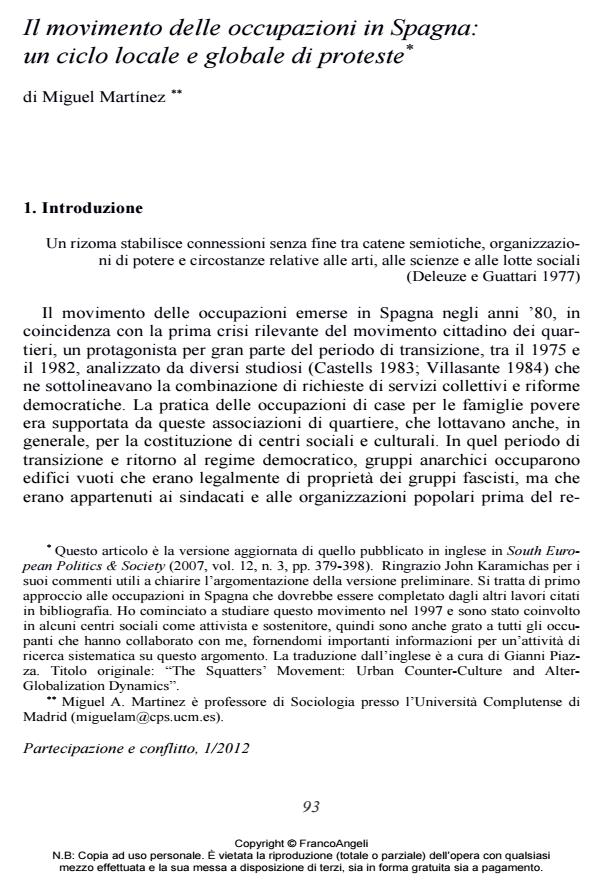The Squatters’ Movement in Spain: A Local and Global Cycle of Urban Protests
Journal title PARTECIPAZIONE E CONFLITTO
Author/s Martìnez Miguel Lòpez
Publishing Year 2012 Issue 2012/1 Language Italian
Pages 25 P. 93-117 File size 146 KB
DOI 10.3280/PACO2012-001005
DOI is like a bar code for intellectual property: to have more infomation
click here
Below, you can see the article first page
If you want to buy this article in PDF format, you can do it, following the instructions to buy download credits

FrancoAngeli is member of Publishers International Linking Association, Inc (PILA), a not-for-profit association which run the CrossRef service enabling links to and from online scholarly content.
Squatting in abandoned houses and buildings in Spanish cities has been a continuous occurrence since the early 1980s. CSOAs (Centros Sociales Okupados y Autogestionados/Squatted and Self-managed Social Centres, SC from now on) acquired greater public importance than buildings squatted only for residential purposes. Nevertheless, both forms of squatting have taken place simultaneously. This article delineates the main characteristics of this movement by taking into consideration: a) spatial trends, b) the ideological principles, c) attempts for coordination and d) the interrelationship with other social movements. This exercise develops a working definition of the squatters’ movement in Spain that allows us to argue that its repertoire of protest and political objectives represent an innovation in the cycle of alter-globalization demonstrations which the squatters’ movement has actively joined, although local transformation and mobilizations were also intensively promoted.
Keywords: Squatting, urban movements, counter-culture, alter-globalization, Spain
Martìnez Miguel Lòpez, Il movimento delle occupazioni in Spagna: un ciclo locale e globale di proteste in "PARTECIPAZIONE E CONFLITTO" 1/2012, pp 93-117, DOI: 10.3280/PACO2012-001005